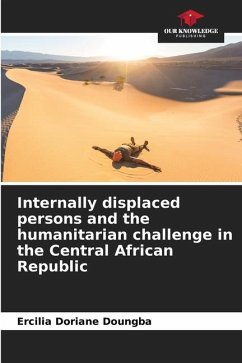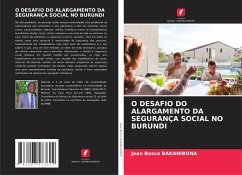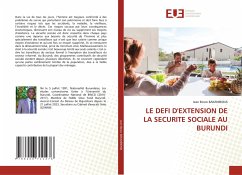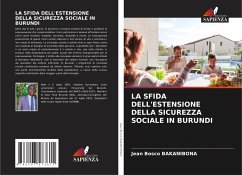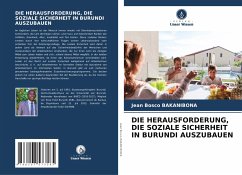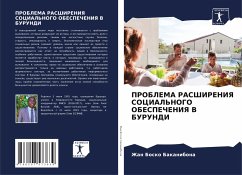
THE CHALLENGE OF EXTENDING SOCIAL SECURITY IN BURUNDI
Versandkostenfrei!
Versandfertig in 6-10 Tagen
40,99 €
inkl. MwSt.

PAYBACK Punkte
20 °P sammeln!
In everyday life, man is always confronted with survival problems that disrupt his assets, and has to deal with certain risks such as accidents, illness, old age, disability and death. The economic consequences of these social risks reduce his standard of living or eliminate his means of existence. In every country, therefore, social security is seen as a response to the need for human security, especially for workers whose only means of subsistence is their salary, and who, once this has been withdrawn, find themselves in total destitution, deprived of the minimum necessities of life. Unfortu...
In everyday life, man is always confronted with survival problems that disrupt his assets, and has to deal with certain risks such as accidents, illness, old age, disability and death. The economic consequences of these social risks reduce his standard of living or eliminate his means of existence. In every country, therefore, social security is seen as a response to the need for human security, especially for workers whose only means of subsistence is their salary, and who, once this has been withdrawn, find themselves in total destitution, deprived of the minimum necessities of life. Unfortunately, the right to social security is largely limited to salaried workers, i.e. those in the formal sector, with the exception of those in the informal sector. In Burundi, contributory social security programs have existed for several decades. However, they only cover an extremely limited proportion of the population, due to the low contributory capacity of most households.



